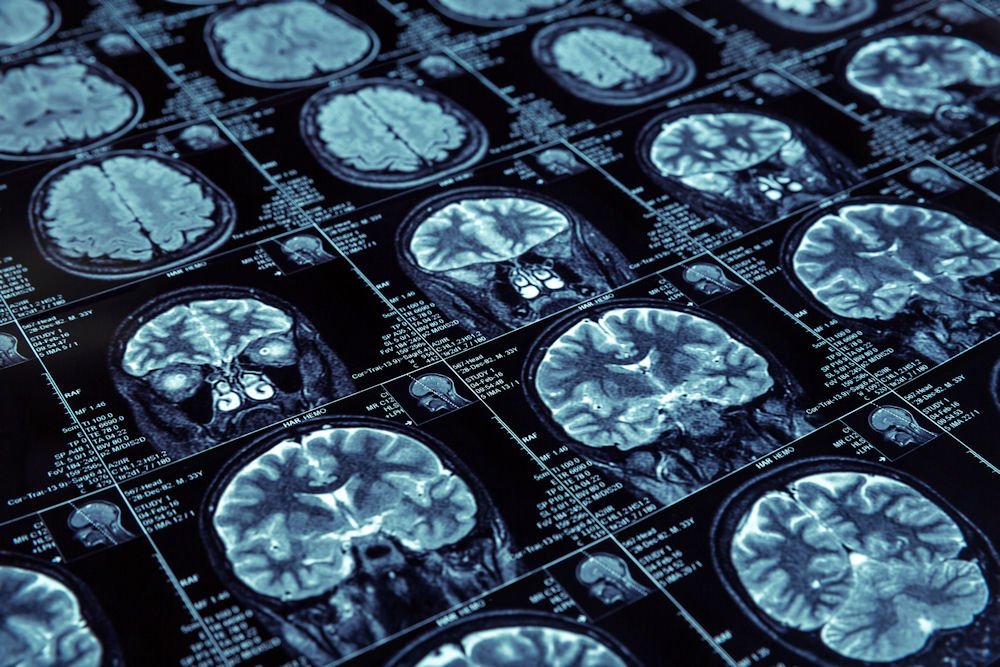Every November, The Alzheimer’s Association seeks to spread awareness about Alzheimer’s Disease and other forms of dementia. By raising awareness, The Association aims to accelerate global research, promote risk reduction, support early detection, and maximize the quality of care and support for people with Alzheimer’s Disease.
At Golden Gate Recovery, we are committed to not only supporting individuals who are struggling with alcohol use disorder (AUD) but also empowering individuals with information on the relationship between Alzheimer’s and alcohol.
Can alcohol cause Alzheimer’s? Truth is, the link between alcohol abuse and Alzheimer’s may surprise you. Equipped with the right information, though, you can make informed decisions when it comes to alcohol consumption and its effects on your mind and body.

Alzheimer’s Disease is a progressive and irreversible brain disorder that slowly destroys memory and thinking skills. As Alzheimer’s progresses, it leads to severe impairment in memory and communication and eventually causes difficulties with daily tasks. Moreover, it is the most common cause of dementia, accounting for 60-80% of cases, according to The Alzheimer’s Association.
While Alzheimer’s is most commonly found in older populations, it is not considered a normal part of aging. On average, adults with an Alzheimer’s diagnosis are 65 years old or oldAgingging is considered to be the highest risk factor for the disease because of this. However, 5% of cases are early-onset Alzheimer’s that happen before the age of 65 and can affect individuals as young as 30 years old.
Since Alzheimer’s is a progressive disease, it worsens over time. On average, an Alzeihmer’s diagnosis leads to an individual’s death within four to eight years. In some cases, however, individuals may live up to 20 years after diagnosis.
Memory problems are one of the most prominent and well-known of Alzheimer’s symptoms. However, other behavioral, emotional, and physical symptoms might be present as well. The following are the most common signs of Alzheimer’s in its different stages:
Alzheimer’s begins in the part of the brain that is in charge of learning. It then progresses to the part that manages language, reasoning, and social behavior. In the final stages of the disease, Alzheimer’s affects essential bodily functions.
It is common for adults with Alzheimer’s to not recognize that they are showing symptoms. Usually, it is more apparent to those around them. As a result, it is vital to be vigilant and look for signs in loved ones who may be at risk.
While alcohol abuse does not directly cause Alzheimer’s Disease, it has been linked to an increased risk of developing the disease. According to research conducted by the National Institute on Aging, heavy drinking may increase the risk of Alzheimer’s by up to 5 times. This is because long-term alcohol consumption can cause damage to brain cells, leading to memory loss and cognitive impairment. Therefore, timely and effective alcohol abuse treatment in California is essential for those who engage in heavy drinking to mitigate these risks.
Furthermore, binge drinking has also been linked to an increased risk of developing Alzheimer’s Disease. Binge drinking refers to consuming a large amount of alcohol in a short period, typically defined as four or more drinks for women and five or more drinks for men in two hours. This pattern of drinking can cause spikes in blood alcohol levels, leading to brain damage and increased risk of Alzheimer’s.

Alcohol abuse has long been linked to memory loss and cognitive impairment. You are probably familiar with the concept of a blackout or a hazy memory after a night of drinking. Even if you haven’t experienced this yourself, many movies and TV shows depict this scenario. These occurrences are not just limited to fantasy though, as consuming too much alcohol can truly impair your memory.
According to research by the Frontiers Research Foundation, binge drinking can lead to long-term damage to the hippocampus, which is responsible for learning and memory. Over time, this damage can contribute to the development of Alzheimer’s Disease. Furthermore, excessive alcohol consumption has been linked to brain inflammation and oxidative stress, both of which can accelerate the progression of Alzheimer’s.
While excessive alcohol consumption is harmful to the brain in general, studies have shown that women are more likely than men to develop memory problems as a result of alcohol abuse. According to the Centers for Disease Control and Prevention, when women drink they absorb more alcohol and take longer to metabolize it. Due to the physiological differences and hormonal fluctuations between men and women, women’s brains are more vulnerable to the effects of alcohol.
In general, women are also more likely to develop Alzheimer’s in the first place. This is due to women having a greater life expectancy than men do. This leaves women vulnerable to the biggest risk factor for Alzheimer’s Disease which is aging. In fact, according to the Alzheimer’s Society, women are twice as likely to develop Alzheimer’s Disease.
While women may be at greater risk, it is essential to note, that both men and women are at risk for developing Alzheimer’s due to alcohol consumption. Unfortunately, since men’s life expectancy is shorter, it is difficult to know if men of the same age would also suffer from the same rates of Alzheimer’s Disease as women. Regrettably, there is also little study on people who are transgender and intersex making statistics regarding rates of Alzheimer’s also unclear. Therefore, everyone must be aware of the potential risks and take precautions when it comes to alcohol consumption.
Alzheimer's is typically associated with older populations, but it can also affect individuals at a young age. In fact, according to the National Institute on Alcohol Abuse and Alcoholism, excessive alcohol consumption during adolescence can increase the risk of developing Alzheimer's Disease later in life. This emphasizes the importance of educating and preventing alcohol abuse in adolescents.
To answer the question: can alcohol cause Alzheimer's, we have to dive into how alcohol can contribute to the development of Alzheimer's. First and foremost, it is crucial to understand that excessive alcohol consumption can harm brain cells. This damage can lead to the loss of brain tissue and affect the functioning of neurotransmitters, which are critical for sending messages between neurons.
Additionally, alcohol abuse can also cause inflammation in the brain. Inflammation is a natural response of the body but can become damaging when it becomes chronic or excessive. Chronic inflammation has been linked to neurodegenerative diseases such as Alzheimer's. Moreover, alcohol consumption can also lead to oxidative stress, which causes damage to cells and impairs their functioning.
Finally, excessive alcohol consumption can also contribute to the development of conditions such as Wernicke-Korsakoff syndrome (WKS), a type of dementia that is caused by a thiamine deficiency, commonly seen in individuals with severe alcohol addiction. WKS has similar symptoms to Alzheimer's, such as memory impairments, confusion, and difficulty with coordination.
So, can alcohol cause Alzheimer's? No. Does alcohol contribute to Alzheimer's? Yes. While alcohol may not directly cause Alzheimer's Disease, it can increase your risk of developing this incurable, progressive, and terminal disease.
While there is no definitive way to prevent Alzheimer's Disease, reducing alcohol consumption can be one step toward mitigating the risk. Engaging in a healthy lifestyle that includes regular exercise and a well-rounded diet can also help reduce your chances of developing the disease. Additionally, staying socially active and mentally stimulated can also contribute to brain health.
Sometimes, alcohol addiction may get in the way of you avoiding abuse. If you or a loved one is struggling with alcohol addiction in Northern California, call us today to learn more about your options. Our alcohol addiction treatment programs for men can help you lower your risk of the adverse risks of alcohol abuse.
At Golden Gate Recovery, we understand how difficult the journey towards recovery can be, but we believe that with proper support and treatment, it is possible to overcome alcohol addiction and live a fulfilling life. Our team of experienced professionals offers individualized treatment plans—in an outpatient setting—focused on healing both the body and mind. Our comprehensive approach includes evidence-based therapy, outdoor activities such as hiking, yoga, and expressive arts.
To increase access to our addiction treatment services near San Diego, California, we accept health insurance from most providers including Aetna, Cigna, Blue Cross Blue Shield, Beacon, and Multiplan. We can verify your insurance coverage, and also refer you to trusted area partners if you require services such as sober living housing.
Here you can gain the life skills you need while strengthening your mind, body, and spirit. To learn more about our addiction treatment programs, contact us today at our addiction treatment center in Novato, CA. We offer 24/7 coordination of care as well as a high level of accountability.
Get confidential help! Call Us Now for:

Golden Gate Recovery is a grass roots organization created by men in long term recovery with a simple mission: to continue strengthening our therapeutic and peer led community toward the goal of long term recovery for each client.